It has been a year of ritual and jubilee, and our river keeps moving. Over the next six weeks, follow the current toward Belém as we advance Global Climate Reparations and organize alongside frontline leaders for an expanded definition of human rights inclusive of climate migration, climate finance rooted in repair and collective self-governance.
Week of October 6, 2025
At the Raising Hope Conference for Laudato Si’, Taproot Earth joined faith and movement leaders advancing land return, debt justice, and collective governance for repair.
Taproot Earth joined the Laudato Si’ Raising Hope Conference to deepen alignment between faith-based movements and the work of Global Climate Reparations.
Across this convening, leaders lifted up the intertwined calls for land return, debt cancellation, and collective governance as vital acts of ecological and spiritual repair.




The closing water ceremony, where participants mingled waters from their homelands, honored the cry of the earth and the cry of the poor, linking sacred ritual with the ongoing movement for repair that began with the Frontline People’s Jubilee Council and continues flowing toward Belém.
Week of October 12, 2025
At the UN Forum on Human Rights, Democracy, and the Rule of Law, Taproot's Colette Pichon-Battle joined global leaders to center reparations as essential to addressing the climate crisis. Speaking on a panel on systemic transformation, she emphasized that democracy cannot thrive on a planet shaped by extraction and inequity, and that Global Climate Reparations offer a framework for rebuilding governance rooted in accountability and liberation. This gathering came on the heels of the International Court of Justice advisory opinion on climate change, providing a timely platform to link human rights, climate action, and the moral and legal imperative of repair.
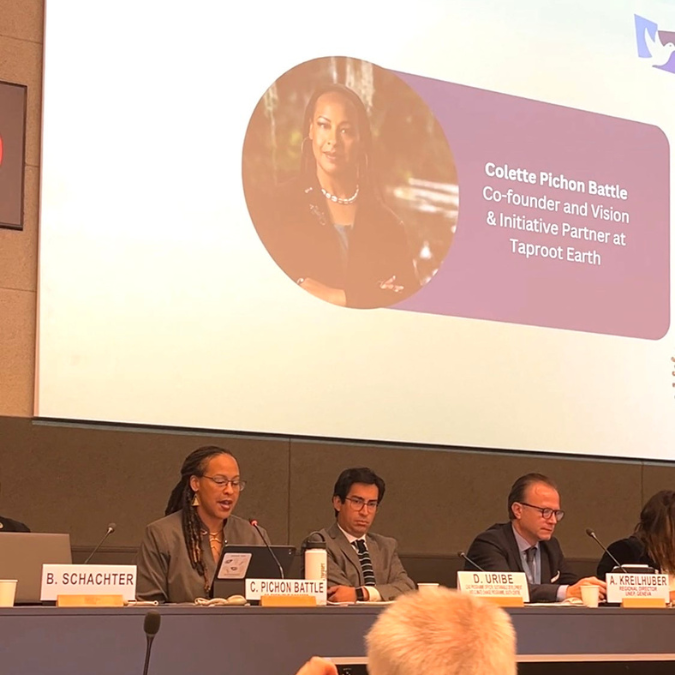
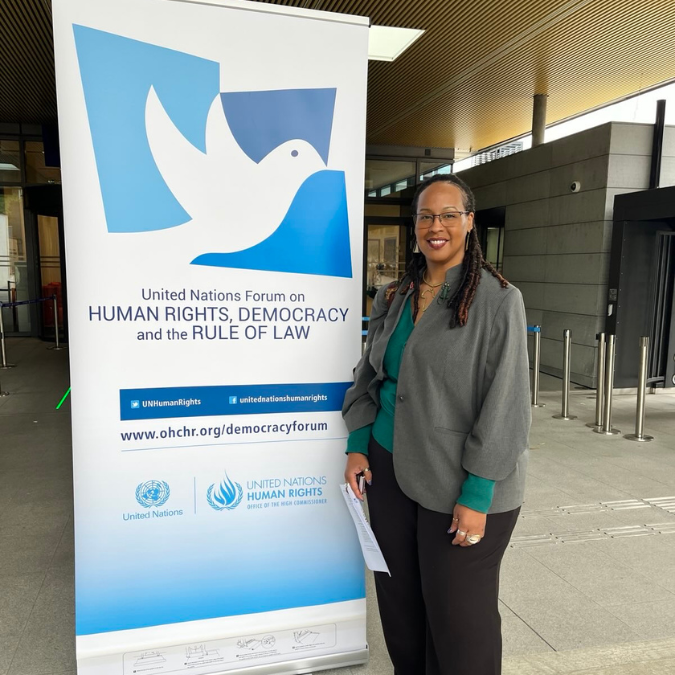
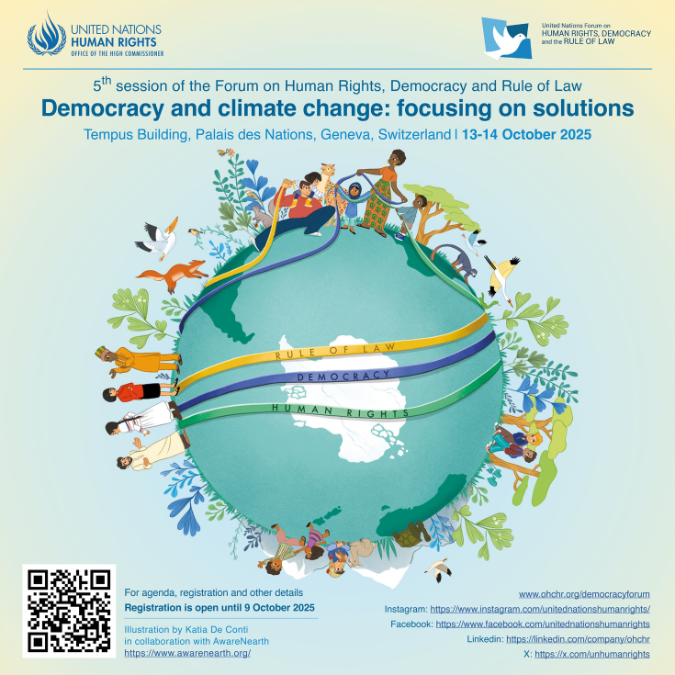
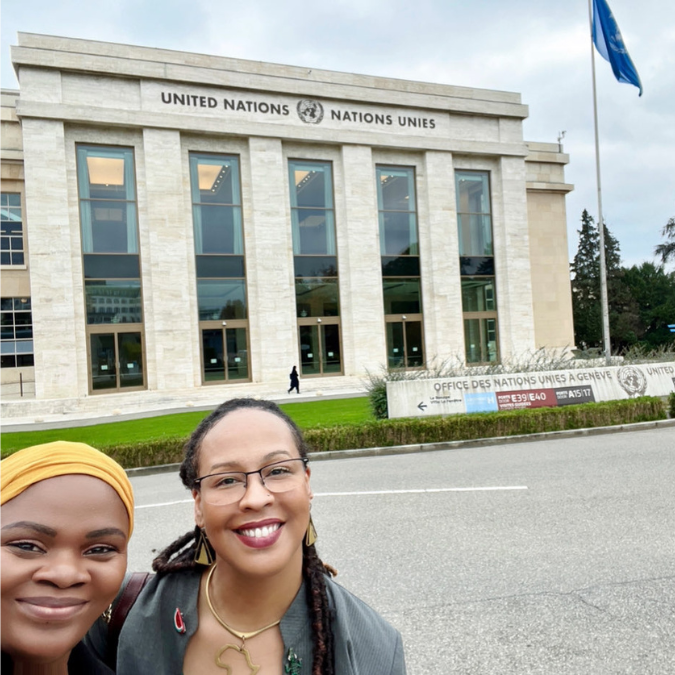
From Geneva to the Gulf South, the work remains clear: climate justice requires structural change that redistributes power to frontline communities. By naming reparations as both a remedy and a right, Taproot Earth helped expand the conversation from policy to possibility, grounding global dialogue in the lived realities and leadership of those most impacted, communities whose visions for repair continue to flow toward Belém.
Week of October 20, 2025
Taproot Earth joined frontline leaders from five continents at the Jubilee of the Popular Movements to advance justice around the three T’s: Tierra (Land), Techo (Lodging), and Trabajo (Labor), rights named by Pope Leo XIV and faith leaders as sacred to human dignity. Hosted at Spin Time Labs, the official gathering of the Catholic Church united popular movements to share lived experiences of organizing and to magnify reparative calls to action. Taproot supported language justice and co-facilitated the English commission on Tierra (Land), helping anchor the conversation in Global Climate Reparations as a framework for repair-centered frontline solutions.
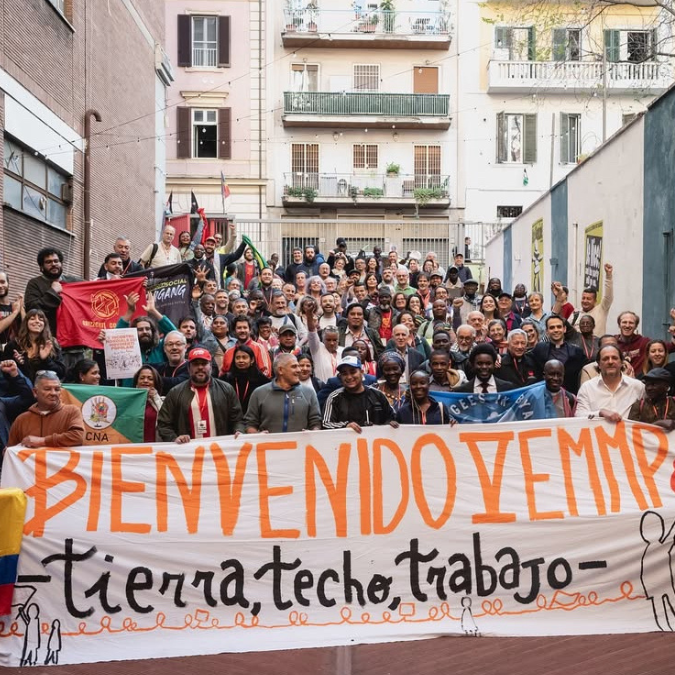
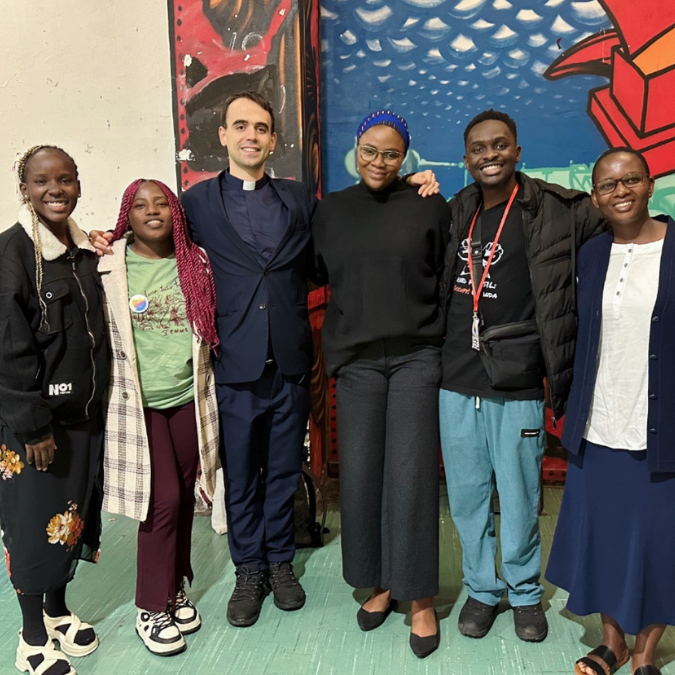

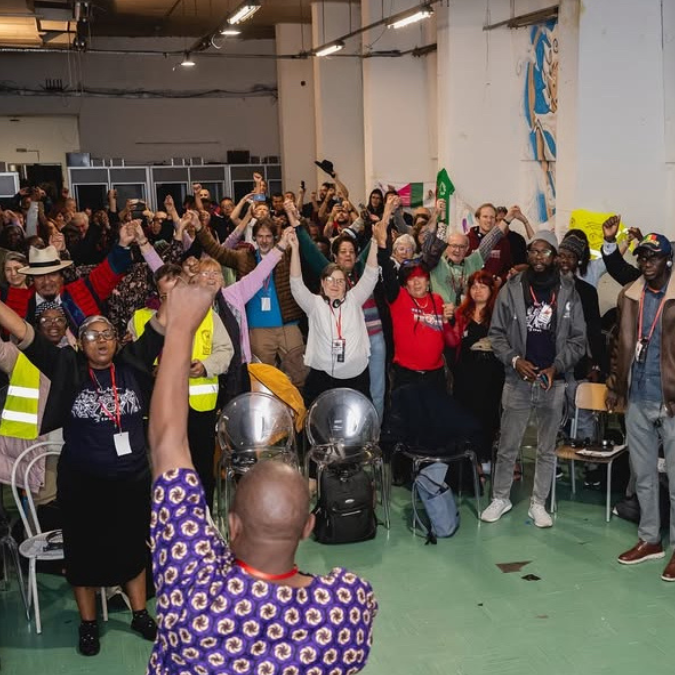
Together and alongside popular movements, we affirmed that repair must replace extraction and that the path toward climate justice flows through accountability, redistribution, and the leadership of those most impacted.
GCR Fellow Micheline Mwendike Kamate also addressed the press at a conference held ahead of the gathering. These shared calls for repair were later lifted up during an audience with the Pope, who affirmed the Church’s responsibility to stand with frontline communities.
Week of October 27, 2025
From the Niger Delta to the Deep South to Madagascar, more than 50 Black organizers and GCR Fellows from 20 countries came together in San Juan, Puerto Rico for the 2025 Black Climate Leadership Summit.
The gathering offered many a rare witnessing of the vastness of Blackness in one room, bringing together different ethnicities, tribes, religions, and disciplines in one Black space of connection, reflection, and joy. Rooted in Global Climate Reparations, participants expanded their language toolkit, interrogating their own and one another’s definitions while co-creating new ones reflective of the room.
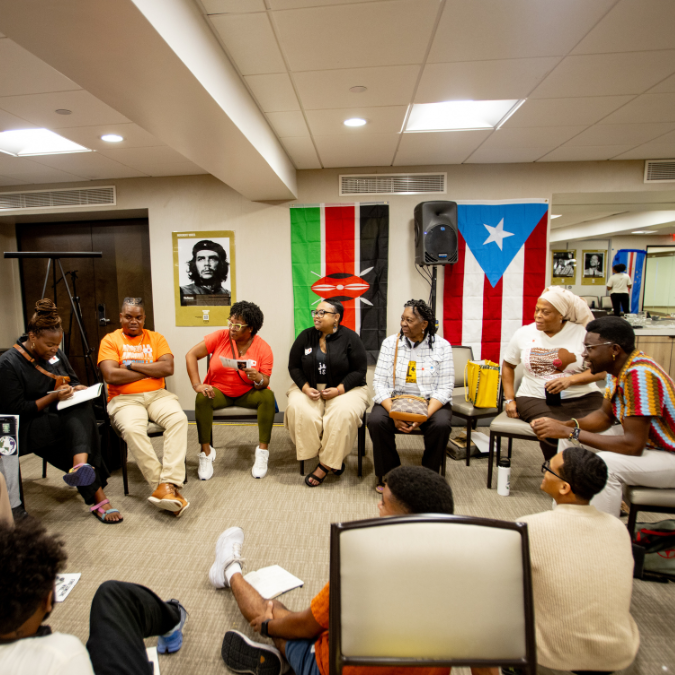
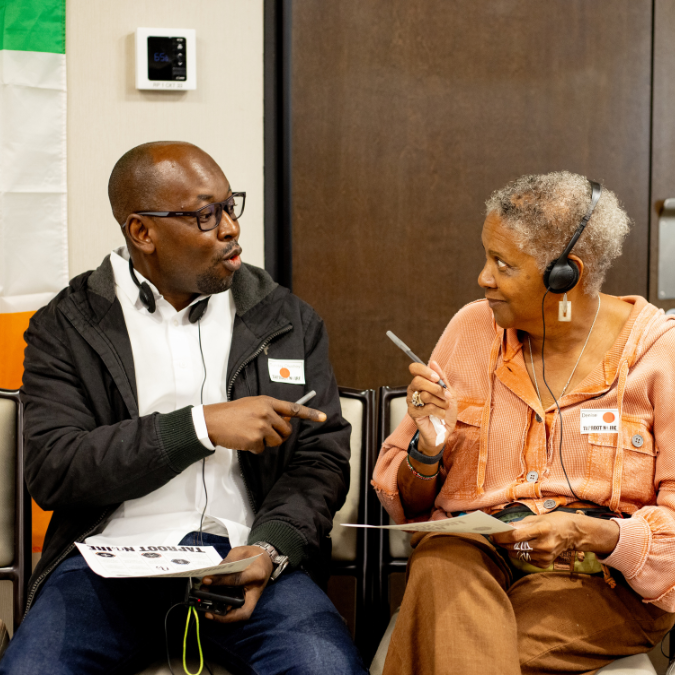

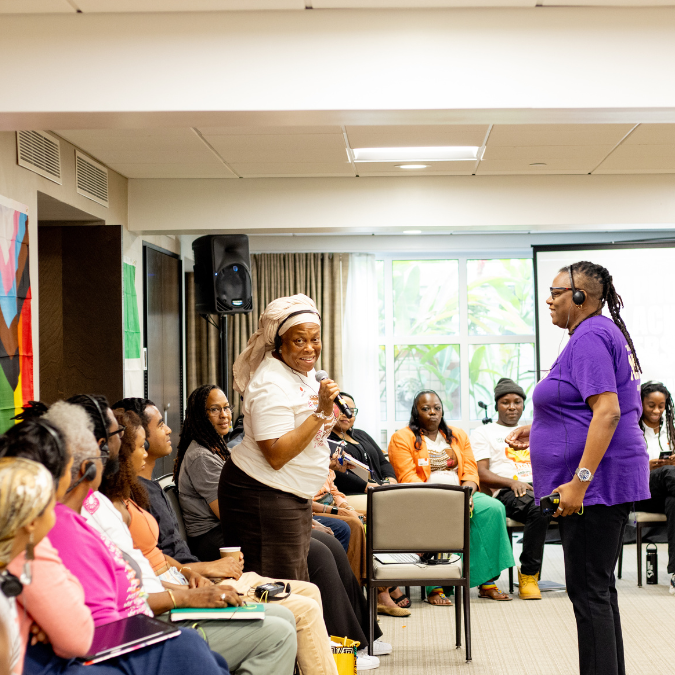
Attendees connected and together, explored how repair begins, what it requires, and how it can be realized through the creation of accountable systems grounded in collective self-governance and care.
The framework of Global Climate Reparations guided conversation, linking Black liberation to Indigenous sovereignty and ecological balance. Each attendee also received access to wellness services, part of a deliberate insistence on rest as resistance and repair. For many, the experience was a homecoming, a reminder that freedom begins with belonging and that repair is both personal and collective.
november 3, 2025
Grounded in the principles of Global Climate Reparations, the Executive Summary, "Toward a Liberation Economy of Climate Finance," invites readers into a transformative vision of what climate finance can become when it is grounded in repair, care, and shared abundance.
The four-page summary reframes climate finance as a tool for justice and collective wellbeing. As a team, we call for a shift away from an extraction economy of scarcity toward a liberation economy of abundance. A liberation economy is one where frontline, Black, and Indigenous communities guide how resources flow to foster care and collective thriving.
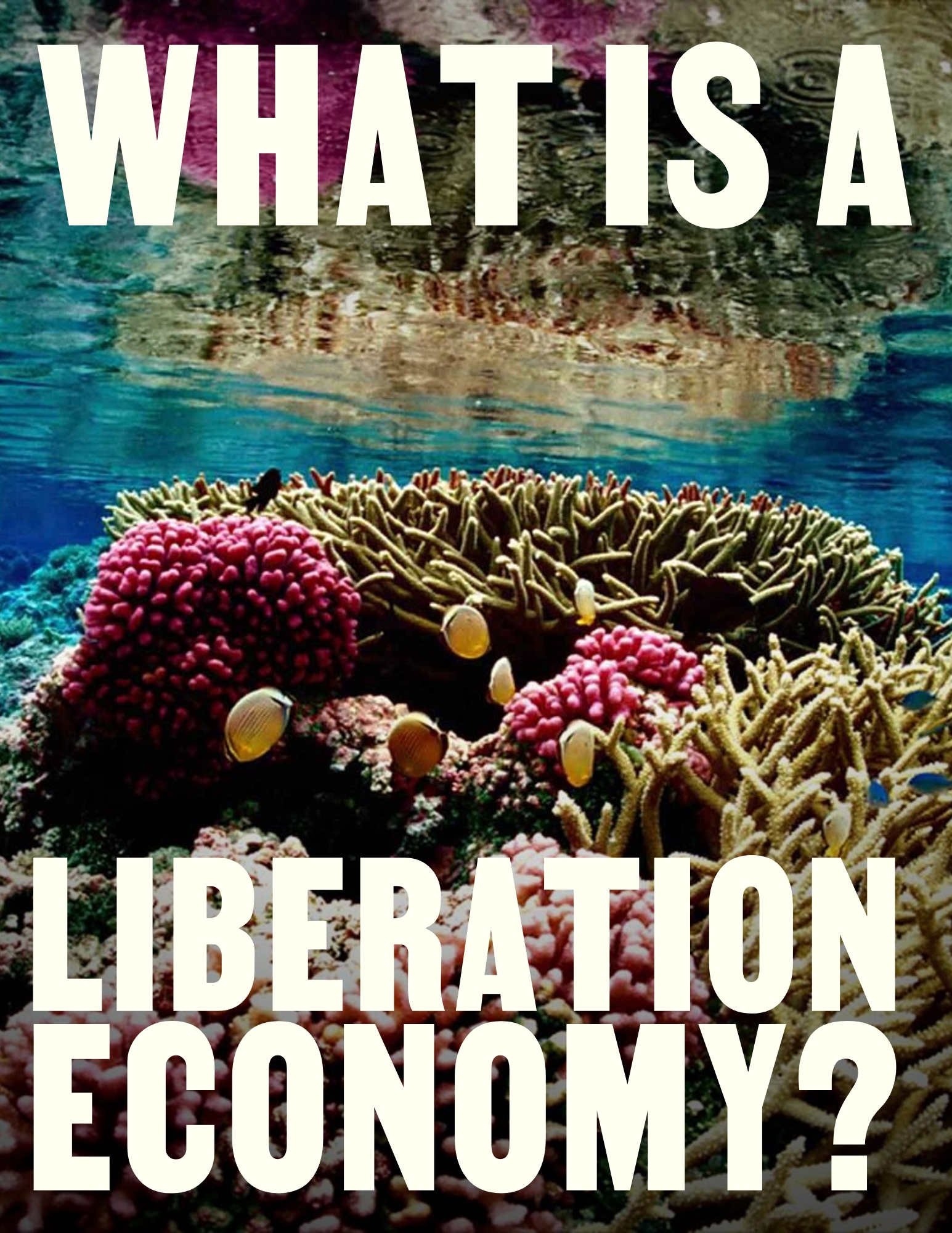
This vision offers a glimpse into Taproot Earth’s forthcoming Climate Finance Report, to be released in 2026. The longer report will expand this framework to show what a liberation economy can feel like.
Together with the Global Climate Reparations framework and the insights shared from the 2025 Jubilee Convening, this Executive Summary invites readers to imagine climate finance as a tool for redistributing power and building a future where wealth supports thriving communities.
Week of NOVEMber 10, 2025
The People’s Summit Towards COP30 and the gatherings that surrounded the event reflected the growing convergence of social and environmental movements across Brazil. Women, Indigenous peoples, quilombolas, farmers, workers, youth, and defenders of land, water, and life continue to collectively call for an end to extraction, a just energy transition, and an economy of care rooted in climate and social justice.
Aligned with and present in this global current of organizing and repair, Taproot carried the commitment to frontline wisdom throughout COP30 through the Krewe’s championing of the Climate Cup of Solutions.


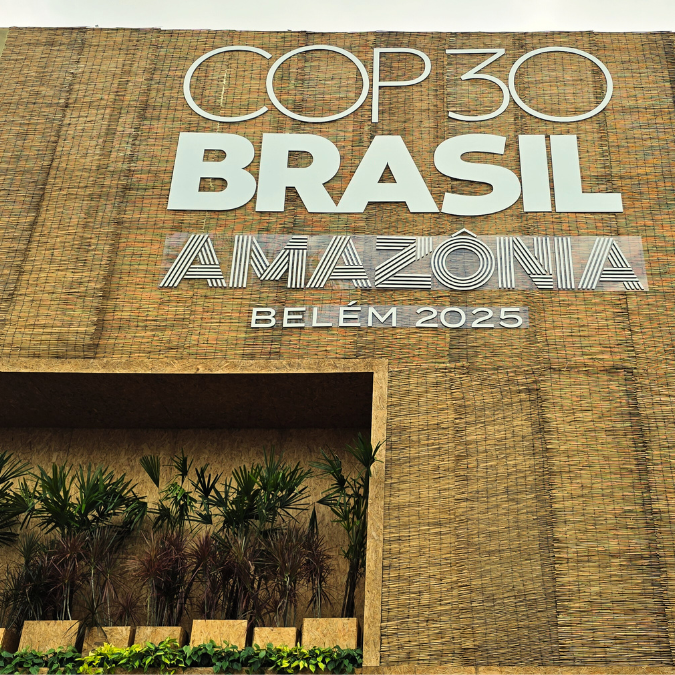
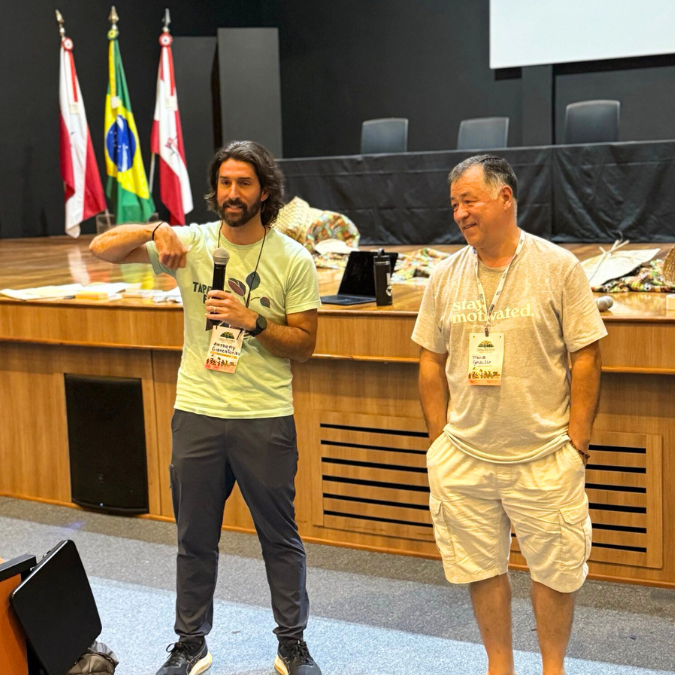
Attendees connected and together, explored how repair begins, what it requires, and how it can be realized through the creation of accountable systems grounded in collective self-governance and care.
Grounded in this same call for justice, Taproot and partners hosted a Gathering of the Waters at the headwaters of the Amazon River, continuing a living ceremony where Indigenous, Black, and frontline leaders gather to honor the water that sustains life and to acknowledge the ancestral relationships that guide its protection. The sacred shared moment was an expression of our collective hope and hunger for peace, a reflection of our shared longing to flow together toward wholeness, balance, and liberation.